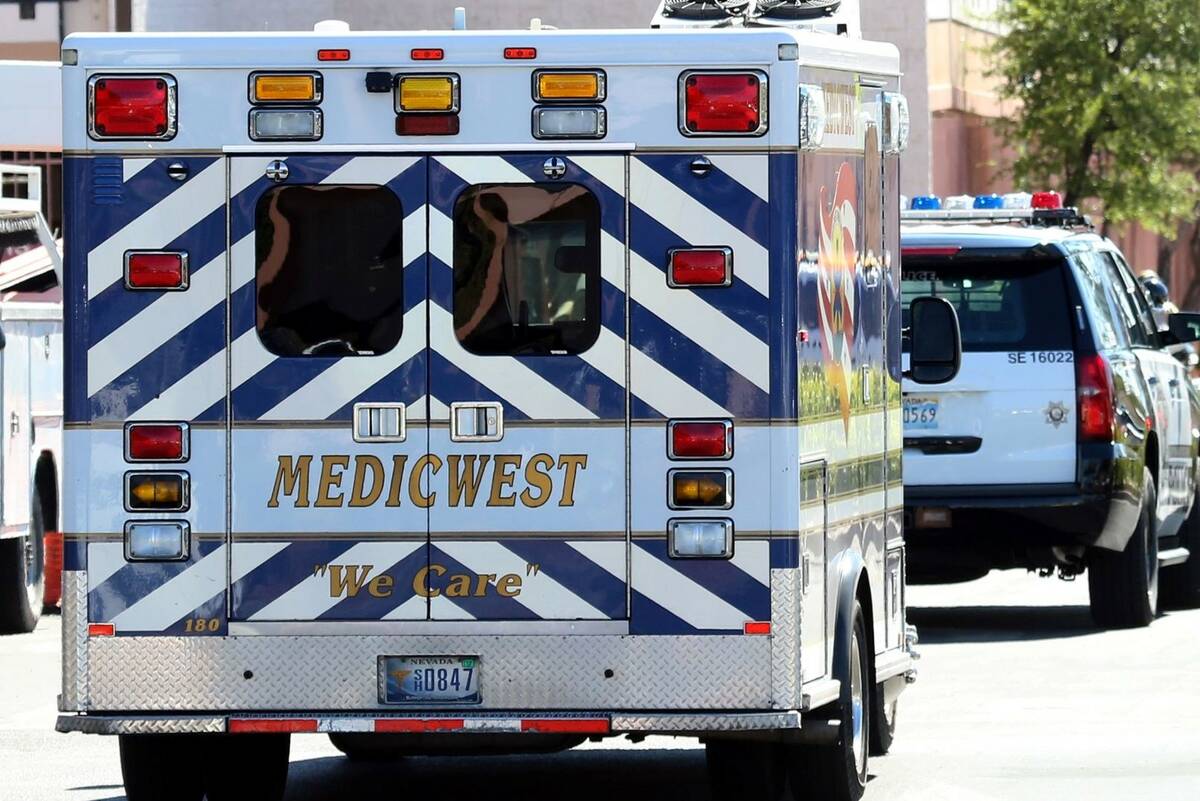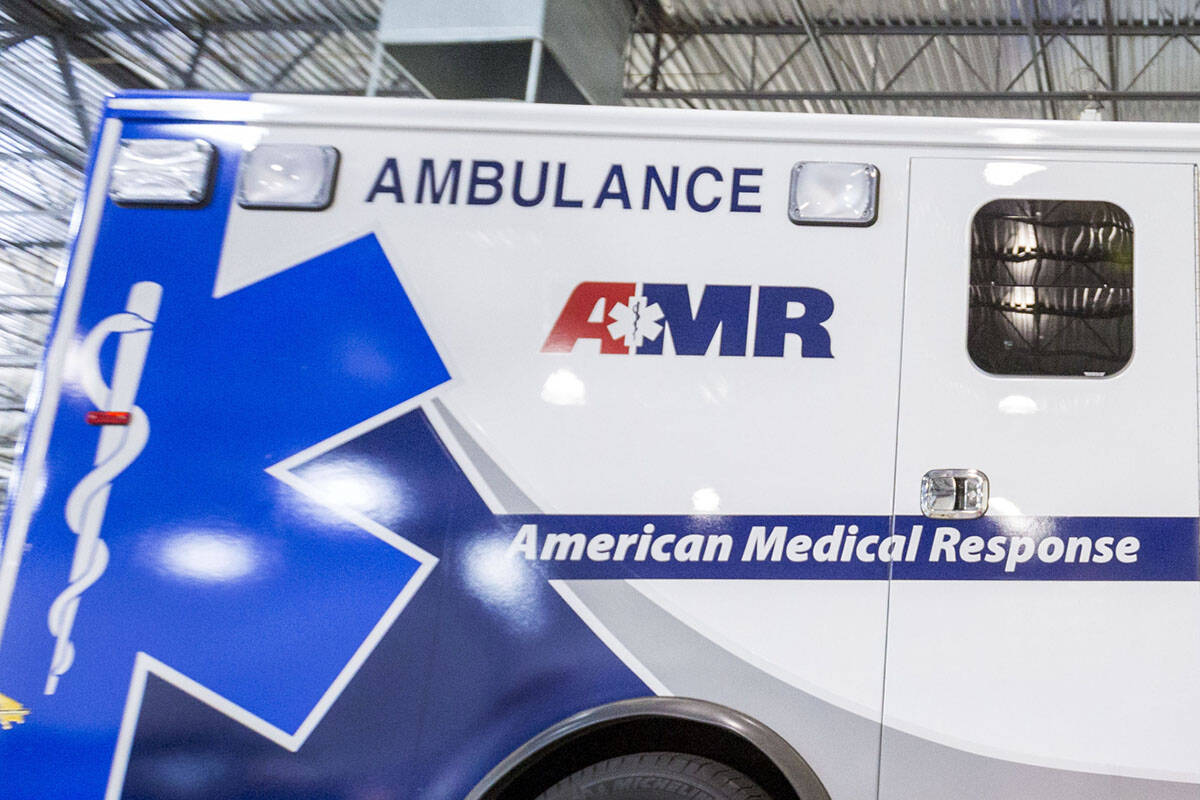Ambulance companies see Las Vegas coverage areas shrink
Clark County will significantly reduce the coverage areas of its two largest private ambulance franchisees, which have struggled with being on time to emergencies.
AMR and MedicWest, both owned by Colorado-based Global Medical Response, had been responsible for handling roughly 83 percent of all calls in the unincorporated county under 10-year franchise contracts signed with the county in 2016.
A third operator, Community Ambulance, was tasked with the remaining volume.
But on Tuesday, the County Commission unanimously agreed to equally divvy up coverage zones among the three companies, meaning that each will be responsible for roughly 33 percent of call volume.
The shift comes after county lawmakers expressed concern last month about repeated ambulance delays from AMR and MedicWest. The issue over a recent four-month period resulted in nearly a half-million dollars in penalties against the two operators and strained the resources of the Clark County Fire Department, which has transported far more patients to hospitals this year than on average.
Staffing, pilot program blamed
AMR and MedicWest have blamed delays on unprecedented staffing shortages that are being felt nationwide, and company representatives have said they are working on increasing their pipeline of paramedics. Meanwhile, Community Ambulance had indicated to county officials that it was equipped to scale up operations to handle more workload.
“I would be remiss to not say that I’ve got another franchisee that’s got capacity to help out the system, and not to leverage that capability,” said county Deputy Fire Chief Jen Wyatt, who recommended the new coverage map to county lawmakers.
Damon Schilling, a government affairs manager for AMR and MedicWest, told the commission that the change was “fundamentally flawed.”
He also said the companies had been hampered by several inefficiencies in a county-led pilot program launched in August 2020 that established a new incident priority dispatching system. Community Ambulance did not participate in the experimental effort, he noted.
If resources could be shifted within AMR and MedicWest, then the companies would hit on-time targets, according to Schilling, who said he had submitted a detailed plan to the county to address tardiness issues that did not go as far as changing zones.
“An arbitrary decision without the evaluation of the pilot program data is risky and could potentially have negative and unintended consequences to the community and the patients, especially those who are in our most vulnerable neighborhoods,” he said.
But county officials were unconvinced and questioned why AMR and MedicWest representatives had failed to raise their concerns with the pilot program in previous conversations.
Ninety-percent target
Commissioner Michael Naft, who brought the ambulance issue to the board, cast the coverage shift as an equitable adjustment to a problem he had described last month as “fairly catastrophic.”
“It doesn’t go as far as I might have, but I think it’s fair and reasonable, and I think it’s a response to the data that Clark County Fire has presented,” he said.
Under the franchise agreements, whenever an operator misses on-time targets in any four months during a year, the county is allowed to make changes to coverage areas if it so chooses.
For the most moderate to most serious emergencies, described as priority one calls, ambulances are considered on time if they arrive on scene in less than 12 minutes after being dispatched.
At a minimum, 90 percent of total monthly calls must be completed on time.
Between April and July, AMR reached the on-time standard for priority one calls just once out of eight possible times, according to county-provided figures. For MedicWest, the target was hit three out of eight times.
Community Ambulance exceeded the target every time during the same period.
More talks on resources, growth
As part of its decision Tuesday, the commission also authorized holding discussions every six months on how to address the broader issue of fast-paced growth overwhelming available emergency resources.
























